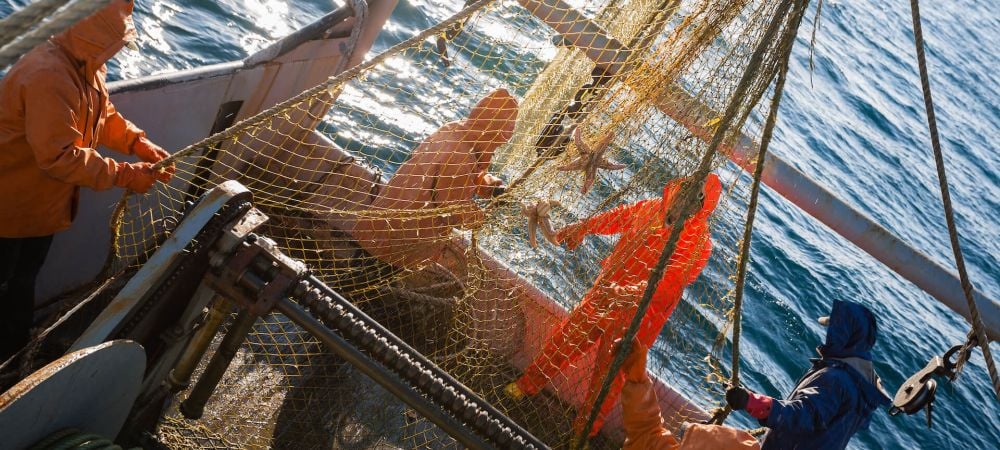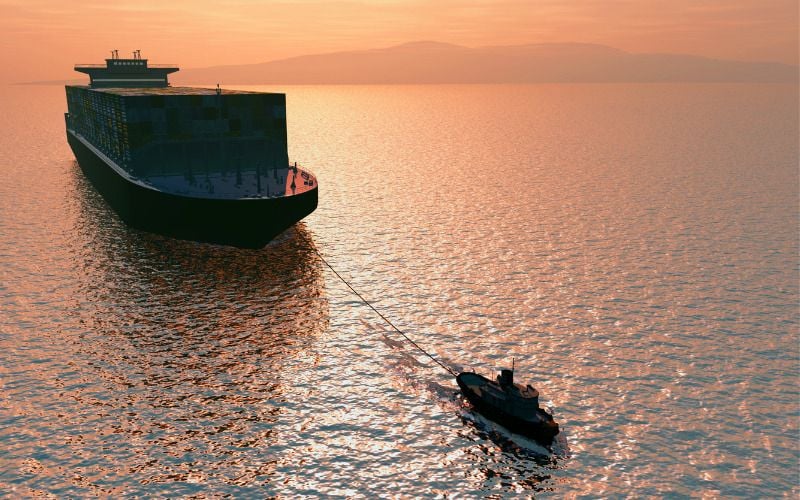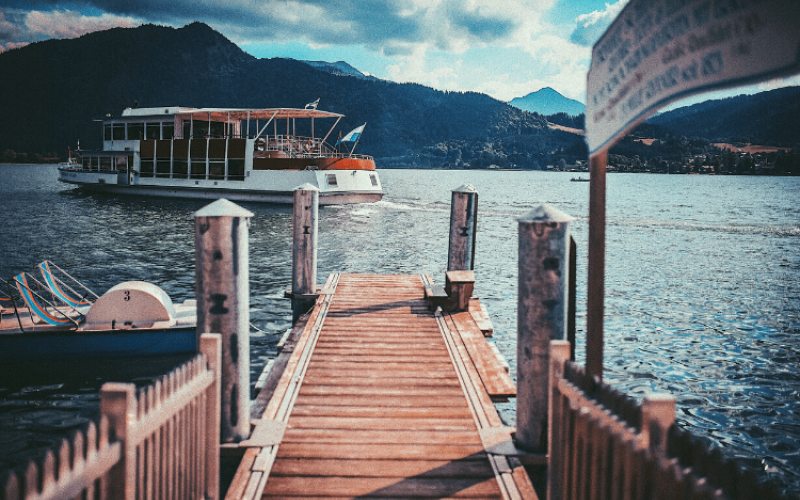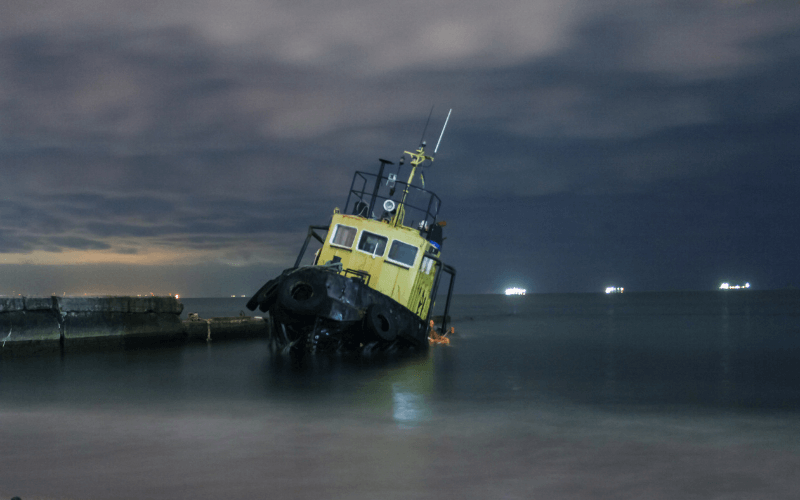
Maintenance and Cure
Maintenance and cure is a basic right of all Jones Act seamen. If you’ve suffered a work-related injury, your employer must pay your general living expenses (maintenance) to replace lost wages, as well as all medical expenses (cure).
You don’t need to prove negligence or fault in order to recover Maintenance and Cure benefits following an injury. These benefits remain payable until you’re fit for duty or you’ve reached a point where medical treatment is no longer helpful.
These benefits are in addition to any other damages paid out from a separate Jones Act negligence claim.
One hundred years ago, President Woodrow Wilson enacted the Jones Act to protect the U.S. shipping industry. The Jones Act was a vitally important piece of legislation that offered protection, security, and stability to U.S. maritime workers, including the right to seek compensation for maritime accident injuries at work when they otherwise might not be covered by regular workers’ compensation. Because of the Jones Act, seamen and maritime workers who are injured due to treacherous sea conditions are entitled to benefits.
Unfortunately, it can be difficult to collect these benefits when employers and insurance companies look for reasons to deny injury claims. If your employer tries to deny you the right to benefits after a maritime injury, you can count on the maritime attorneys at Montagna Maritime Law to protect you.
What is Maintenance and Cure?
Injured maritime workers are awarded maintenance and cure. Think of this as being similar to workers’ compensation for an injured seaman. The Jones Act is properly known as the Merchant Marine Act of 1920 and is a federal law that establishes things like the maintenance and development of a merchant marine to support commercial activity. The merchant marine was also intended to serve as a naval auxiliary in times of emergency or war. The act has been upheld by Supreme Court rulings.
One of the most important parts of the act is that it extends the Federal Employers’ Liability Act, or FELA, to seamen. What this means is that seamen who get injured at sea during the course of employment can bring personal injury actions against maritime employers. This is what maintenance and cure entails.
What is Maintenance?
Maintenance benefits refer to things like room, board, and essential living expenses while seamen recover from their injuries at home. The idea comes from the fact that if the worker had been at sea, the employer would have been required to provide them with room and board. This means the employer has to cover rent, mortgage, utilities, property taxes, food, homeowners insurance, and necessities.
They are not, however, obligated to pay maintenance for items like internet, cable and streaming services, car payments, gasoline, or telephone services. These services are not seen as necessary expenses for running the household, so they are not eligible for maintenance payments.
What is Cure?
Cure benefits cover reasonable and necessary medical expenses as well as transportation costs to get to medical treatment. Just like with workers’ comp, medical costs cover medical care, medication, procedures, physical therapy, and all other medical bills required to treat medical conditions arising from an injury.
Who Qualifies for Maintenance and Cure?
All Jones Act seamen are entitled to maintenance and cure, which is a no-fault remedy. This means that the specific cause of the accident and who is at fault do not matter. So long as the accident happened while the seaman was on the job, they are covered under the act and entitled to maintenance and cure, and they have legal rights to file an injury case for benefits.
How Long Are Seamen Entitled to Maintenance and Cure?
Seamen are entitled to maintenance and cure until the seaman reaches a point of maximum medical improvement, or MMI. At this point, your recovery period has significantly slowed or stopped altogether. When your treating physician feels you have reached your maximum medical cure, they will discharge you from care. You may not have fully recovered, but you are not expected to get any better from that point forward. Your maritime lawyer can help you determine the next steps from there.
If you need legal advice and representation under the Jones Act or general maritime law, the maritime injury lawyers at Montagna Maritime Law can help with maintenance and cure claims. Get in touch with us at 757-622-8100 or use our online contact form to get a free consultation today about the amount of maintenance and cure to which you may be entitled.
What is the Statute of Limitations for Maintenance and Cure?
The statute of limitations for maintenance and cure is three years from the date of the injury. It is not optimal, however, to wait this long. Acting faster is always more favorable. Speak to an attorney right away to get your claim started. Your right to benefits can be difficult to defend the longer you wait, and in addition, you may be entitled to other forms of compensation depending on the specifics of your case. The sooner you act, the more likely it is we can preserve your seaman’s rights.
What Should I Do If My Employer Refuses to Pay Maintenance and Cure?
A seaman’s employer is legally obligated to pay benefits for maintenance and cure. Even so, it is shocking how often employers and shipowners try to escape their legal obligations. In some cases, they will coerce you to sign off on reduced benefits. In other instances, they may attempt to get out of providing benefits altogether. They might claim you are not hurt that badly, or that you got hurt doing something outside the scope of your employment.
If you have been hurt on a maritime job, you should get help and advice from a Jones Act attorney right away. Never trust the employer or insurance company to have your best interests. In fact, if the service of the vessel is poor and it can be deemed unseaworthy, its unseaworthiness can allow you to recover damages from the vessel owner under general maritime law.
How Do I File a Maintenance and Cure Claim?
Take the following steps to file your claim.
Report Your Injury as Soon as Possible
It is imperative that you report your injury right away. Under maritime law, you have only seven days to report the injury to your employer, and failure to do so could be costly to your claim.
Gather Evidence
Next, gather all the evidence you can to support your claim. This includes food expense receipts, medical bills, notes about your condition, mortgage and property tax receipts, and anything else to support your rate of maintenance and cure.
Seek Medical Care
See a doctor as soon as you can. You may need to have the Coast Guard convey you to the mainland to get looked at, but you have the right to such transportation under the maintenance and cure doctrine. Any delay in seeking treatment can be used against you as a sign that you were not that badly injured.
What if an Employer Refuses to Pay Maintenance and Cure?
Employers are obligated under maritime law to pay maintenance and cure benefits to injured or ill crew members, and this is an accepted and well-established part of general maritime law. In fact, the law is clear about the rights of injured or sick seamen to Maintenance and Cure, regardless of what caused the injury or illness or who might be at fault.
If you’ve been injured in a work-related accident or fallen sick while working at sea and your employer is refusing to pay Maintenance and Cure benefits, you should get in touch with a knowledgeable maritime attorney who can review your case and assist you in getting the full benefits you are entitled to under maritime law.
Contact an Attorney
Immediately contact an attorney for advice and help. It is surprisingly likely your employer or their insurance company will try to get out of paying, and an attorney can provide you with the best opportunity to secure full benefits.
Protection for Workers On and Off American Soil
Know your rights as a seaman with Montagna Maritime Law. We protect clients up and down the East Coast from North Carolina to Maryland. Contact our law firm at 757-622-8100 or use our online contact form for a free consultation today. There is no disclaimer, and you will not owe attorney’s fees unless we win.
Free and Confidential Evaluation of Your Case
If you would like to find out more about your legal rights after suffering an injury at work, take advantage of our free consultation. You can learn more about what benefits you may be entitled to and how our experienced maritime attorneys can help. We handle all our cases on a no win, no fee basis, which means you will pay attorney fees only if we are successful in getting you compensation.
"*" indicates required fields


















